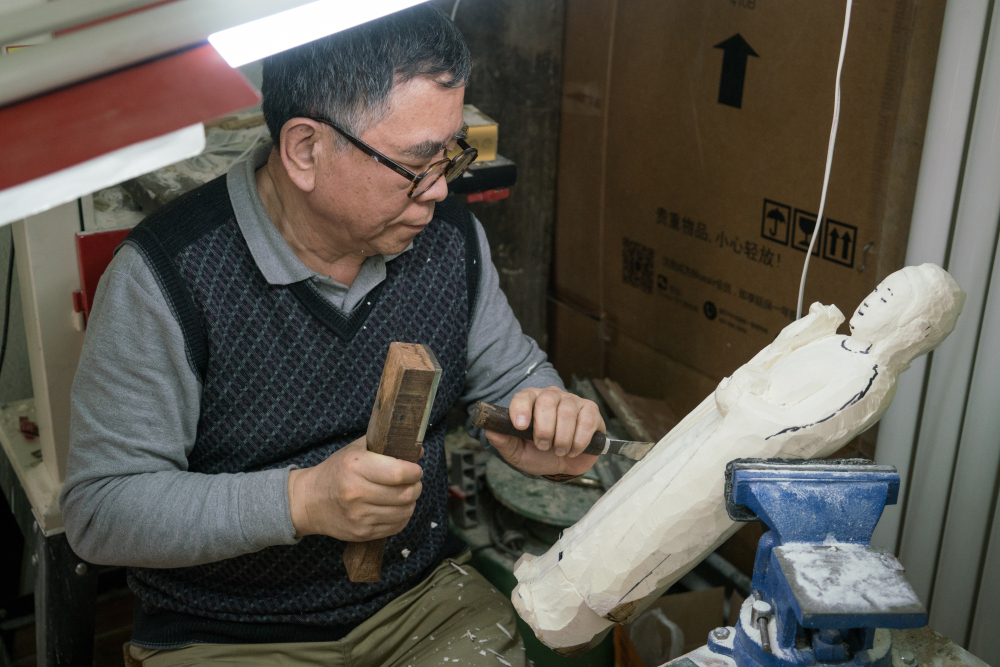BEIJING — Li Chunke began carving ivory after leaving school as a 15-year-old boy.
Today, at 68, this master craftsman is working until the early hours of every morning, trying to finish a 20-inch statuette of Buddha on an unforgiving deadline – before China implements a total ban on ivory sales at the end of this month. The art of ivory carving survived even the tumult of China’s Cultural Revolution, but he’s worried it may soon die out.
“What makes China great is that its traditional culture still exists,” he said. “If it disappears in China, it will be a loss for the whole world.”
Yet China’s commitment to put craftsmen like Li out of business and close down its ivory industry has thrown a lifeline to African elephants, and brought new hope in the battle to end the poaching of tens of thousands of animals every year for their tusks.
The Chinese government shut down 67 ivory carving workshops and retail outlets in March, and will have closed the remaining 105 by the end of this year, honoring a commitment that President Xi Jinping first made alongside then-President Barack Obama back in 2015.
“China’s ban is one of the most important things that has happened to elephants in the last 10 years,” said Iain Douglas-Hamilton, one of the world’s leading elephant conservationists and founder of Save The Elephants. “It’s a highly significant step and I think the impact is increasingly being felt in parts of Africa. But although the net is tightening, the battle is not won at all.”
Poaching levels have dropped slightly in each of the past five years, according to research for the Convention on Trade in Endangered Species, but the total number of elephants in Africa is still thought to be declining because of illegal killings. Stronger law enforcement efforts have also pushed ivory seizures up to a record high.
Even more encouragingly, the looming prospect of China’s ban appears to have pricked the speculative bubble that had contributed to the poaching crisis. The wholesale price of raw ivory in China is reported to have fallen by almost two-thirds in the past three years, from $2,100 per kilogram in 2014 to $730 in February 2017.
Yet the battle to win over the Chinese consumer is far from over. A survey released Wednesday by two affiliated wildlife organizations, TRAFFIC and WWF, found that less than half of consumers surveyed recalled having heard of the ivory ban. After being told of the ban, most people said they would support it, but the survey found a “diehard” 19 percent of consumers who were inclined to keep buying ivory, even after it is banned.
Send questions/comments to the editors.



Success. Please wait for the page to reload. If the page does not reload within 5 seconds, please refresh the page.
Enter your email and password to access comments.
Hi, to comment on stories you must . This profile is in addition to your subscription and website login.
Already have a commenting profile? .
Invalid username/password.
Please check your email to confirm and complete your registration.
Only subscribers are eligible to post comments. Please subscribe or login first for digital access. Here’s why.
Use the form below to reset your password. When you've submitted your account email, we will send an email with a reset code.